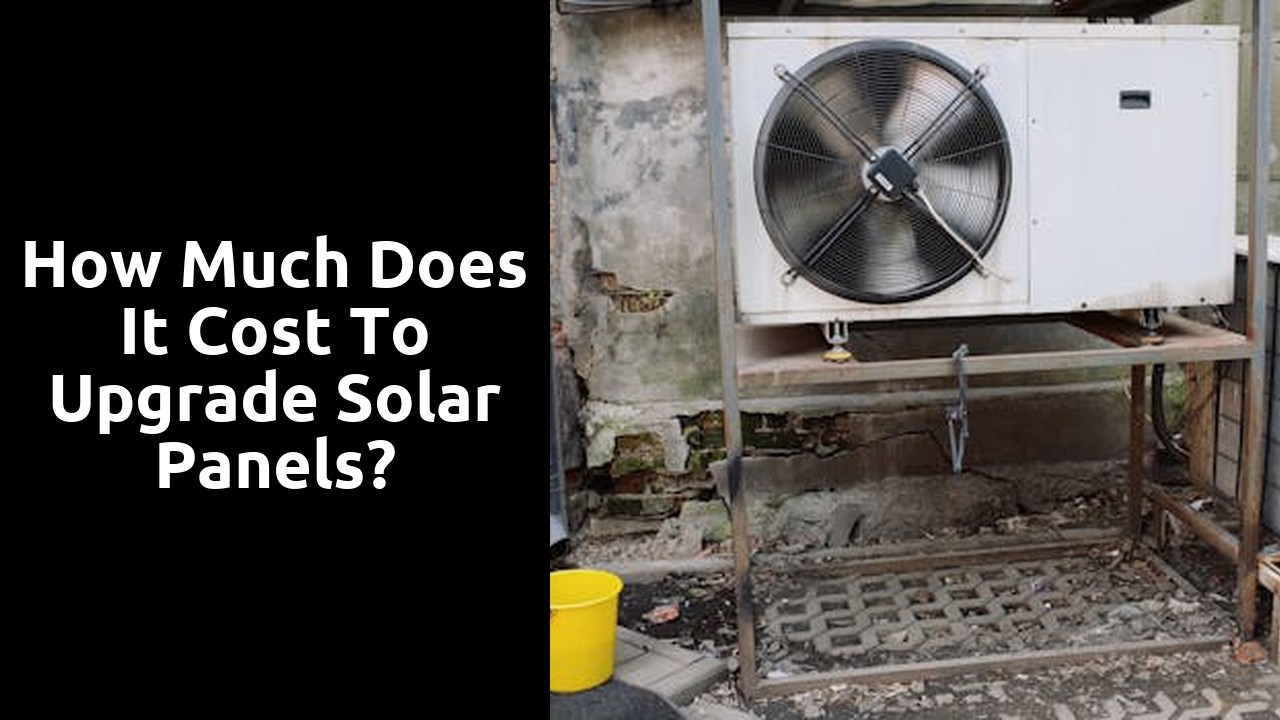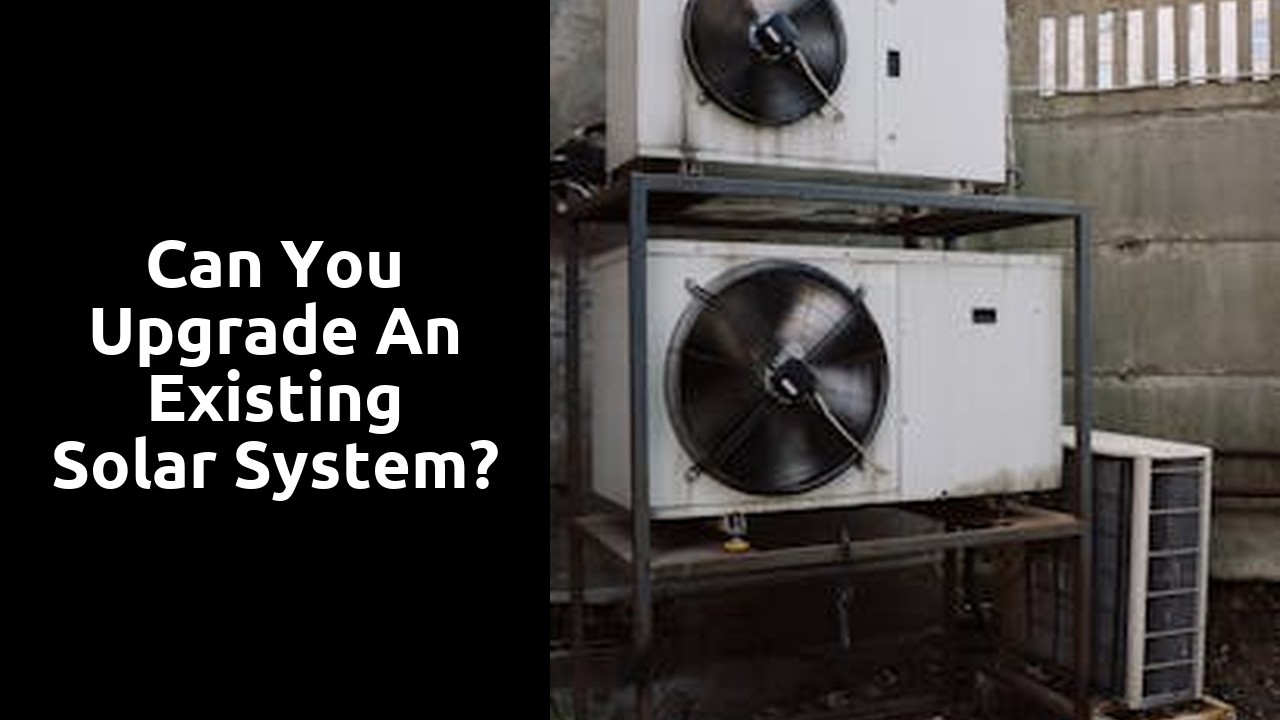
Hiring professional installers for solar panel upgrades
When considering Solar Panel System Upgrades, hiring professional installers is crucial for a successful project. These experts have the necessary skills and experience to ensure the panels are installed correctly and efficiently. They can also provide valuable insight and recommendations based on the specific needs of your home or business.
Professional installers should possess relevant qualifications and certifications to guarantee a high standard of work. Look for installers who are accredited by the Clean Energy Council in Australia. This certification demonstrates their expertise and adherence to industry best practices, giving you peace of mind that your solar panel upgrade is in capable hands.
Qualifications and certifications to look for
Before hiring professionals for Solar Panel System Upgrades, it's crucial to check for specific qualifications and certifications. Look for installers who are accredited by the Clean Energy Council (CEC) in Australia. This certification ensures that the installer has undergone training, meets industry standards, and is competent in installing solar panels. Additionally, consider hiring a company that is a member of the Smart Energy Council to ensure quality service and adherence to ethical standards in the industry.
When selecting an installer for Solar Panel System Upgrades, inquire about their experience in handling similar projects and ask for references or testimonials from previous clients. A reputable installer should be able to provide proof of insurance, warranties on workmanship and products, as well as comply with all relevant safety regulations. Verifying these qualifications and certifications will help guarantee a successful and reliable upgrade to your solar panel system.
Choosing the right solar panels for an upgrade
When it comes to upgrading your solar panel system, selecting the right type of solar panels is crucial in ensuring efficiency and longevity. Monocrystalline and polycrystalline panels are the two main options available, each with its own set of advantages and considerations. Monocrystalline panels are known for their higher efficiency rates and sleek black appearance, making them a popular choice for many homeowners looking to upgrade their solar panel systems. On the other hand, polycrystalline panels are more cost-effective and are a suitable option for those on a budget seeking a reliable upgrade for their solar panel system. Comparing the benefits of each type can help you make an informed decision based on your specific needs and budget constraints when planning your Solar Panel System Upgrades.
Comparing monocrystalline and polycrystalline options
When considering solar panel system upgrades, it's essential to weigh the differences between monocrystalline and polycrystalline options. Monocrystalline panels are known for their higher efficiency rates, making them a popular choice among homeowners looking to maximize energy production. These panels tend to take up less space due to their higher efficiency, which can be advantageous for those with limited roof space. On the other hand, polycrystalline panels are typically more affordable upfront, making them a suitable option for budget-conscious consumers. While they may have slightly lower efficiency rates compared to monocrystalline panels, polycrystalline panels can still be a cost-effective solution for those looking to invest in solar energy.
When choosing between monocrystalline and polycrystalline options for solar panel system upgrades, it's essential to consider factors such as available roof space, budget constraints, and energy needs. Monocrystalline panels are renowned for their sleek appearance and higher efficiency, making them an attractive choice for those seeking optimal performance. On the other hand, polycrystalline panels offer a more budget-friendly option without compromising significantly on quality. By assessing individual preferences and requirements, homeowners can make an informed decision on which type of solar panels best suits their needs for a successful solar panel system upgrade.
Tips for budgeting a solar panel upgrade project
When budgeting for Solar Panel System Upgrades, it's essential to carefully consider the total cost involved in the project. Start by researching the average costs associated with upgrading solar panels in your area. Keep in mind that prices can vary based on factors such as the size of the system, the type of panels being installed, and any additional equipment or upgrades required. Obtaining multiple quotes from reputable solar companies can help you get a better idea of the overall expenses and enable you to make an informed decision regarding your budget.
Additionally, don't forget to factor in any potential incentives, rebates, or tax credits that may be available for solar panel upgrades. Many governments and local authorities provide financial assistance to encourage the adoption of renewable energy sources. By taking advantage of these programs, you can offset some of the initial costs associated with upgrading your solar panels and make the project more financially feasible in the long run.
Financing options and payment plans
Financing options for solar panel system upgrades can vary depending on the provider and your specific financial situation. Many companies offer payment plans that allow you to spread the cost of the upgrade over a period of time, making it more manageable for homeowners. Some providers also offer financing options that may include low or no-interest loans, allowing you to pay for the upgrade without incurring significant additional costs.
Before committing to a financing option for your solar panel system upgrades, it's essential to carefully review the terms and conditions. Understand the interest rates, repayment periods, and any potential fees associated with the financing plan. Compare different options to find the best fit for your budget and financial goals, ensuring that you can enjoy the benefits of a more efficient solar panel system without breaking the bank.
FAQS
How much does it typically cost to upgrade solar panels?
The cost of upgrading solar panels can vary depending on the size of your system, the type of panels you choose, any additional components needed, and the cost of professional installation. On average, you can expect to pay between $5,000 and $15,000 for a solar panel upgrade.
What factors can affect the cost of upgrading solar panels?
Factors that can affect the cost of upgrading solar panels include the size of your existing system, the type and quality of the new solar panels you choose, the complexity of the installation process, any additional components needed, and the labor costs of professional installers.
Is it necessary to hire professional installers for solar panel upgrades?
While it is possible to install solar panels yourself, hiring professional installers is recommended to ensure the job is done correctly and safely. Professional installers have the experience, skills, and tools necessary to complete the installation efficiently and effectively.
What qualifications and certifications should I look for in solar panel installers?
When hiring solar panel installers, look for qualifications such as relevant licenses, certifications from reputable organizations, experience in installing solar panels, and positive reviews from previous customers.
How do I choose the right solar panels for an upgrade?
When choosing solar panels for an upgrade, consider factors such as efficiency, durability, warranty, cost, and aesthetics. Compare options like monocrystalline and polycrystalline panels to determine which type best suits your needs.
What are the differences between monocrystalline and polycrystalline solar panels?
Monocrystalline panels are known for their higher efficiency and sleeker appearance, while polycrystalline panels are more cost-effective and perform well in high-temperature conditions. Your choice between the two will depend on your priorities and budget.
What tips can help me budget for a solar panel upgrade project?
To budget for a solar panel upgrade, consider factors such as the cost of new panels, installation fees, any additional components needed, permits and inspections, and potential maintenance costs. Researching and obtaining multiple quotes can also help you budget effectively.
What financing options and payment plans are available for solar panel upgrades?
Financing options for solar panel upgrades may include solar loans, solar leases, power purchase agreements (PPAs), and government incentives or rebates. Some installers may also offer payment plans or financing packages to help you cover the upfront costs.
